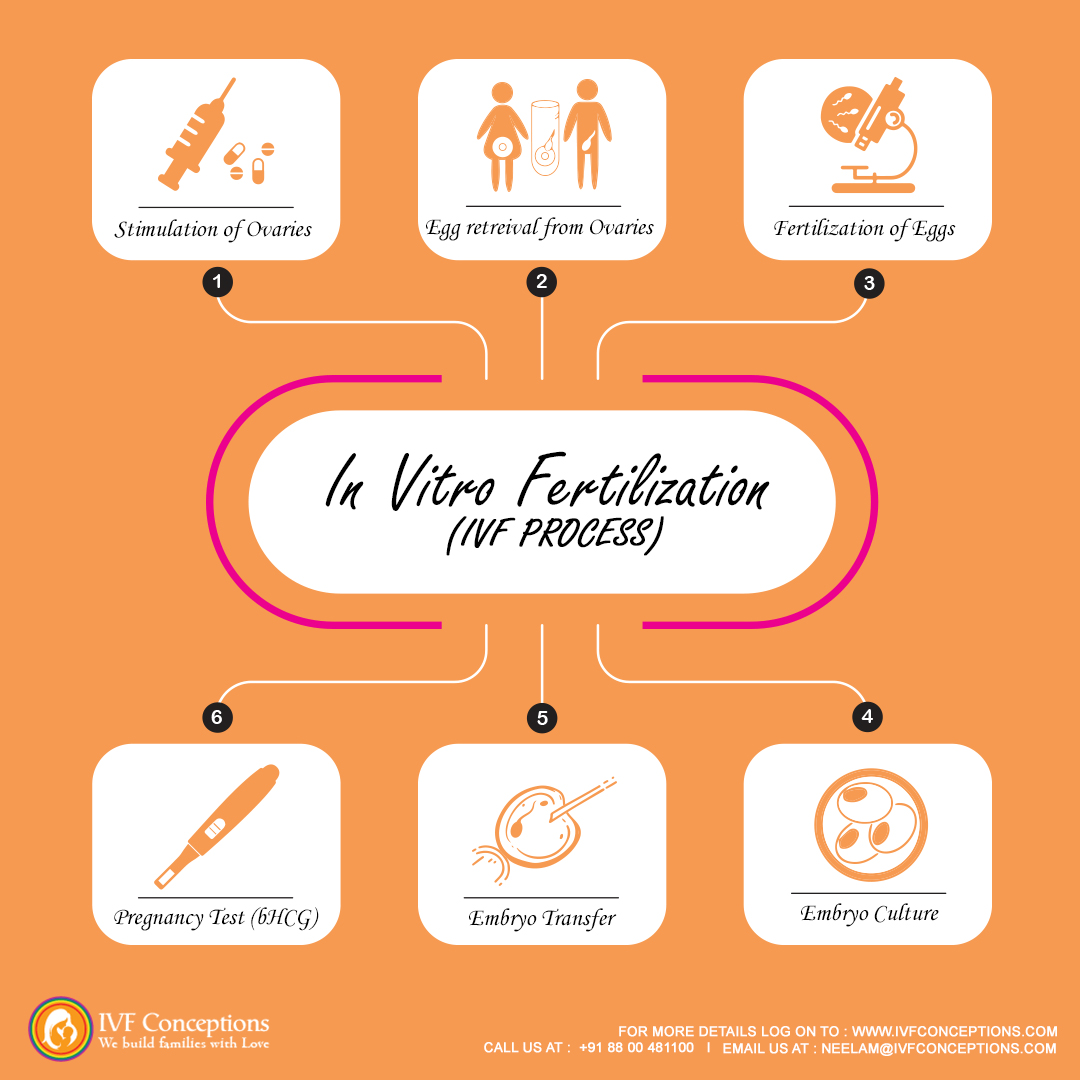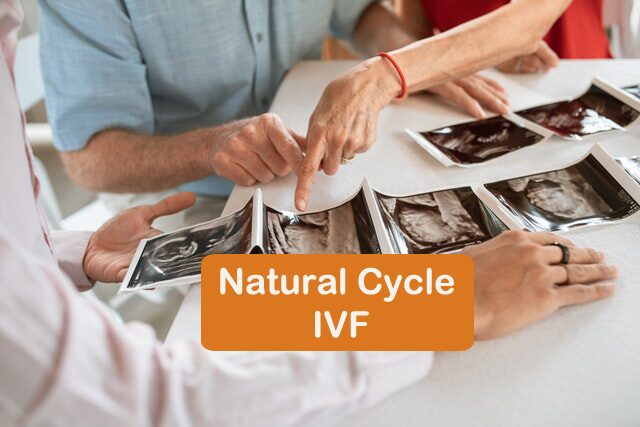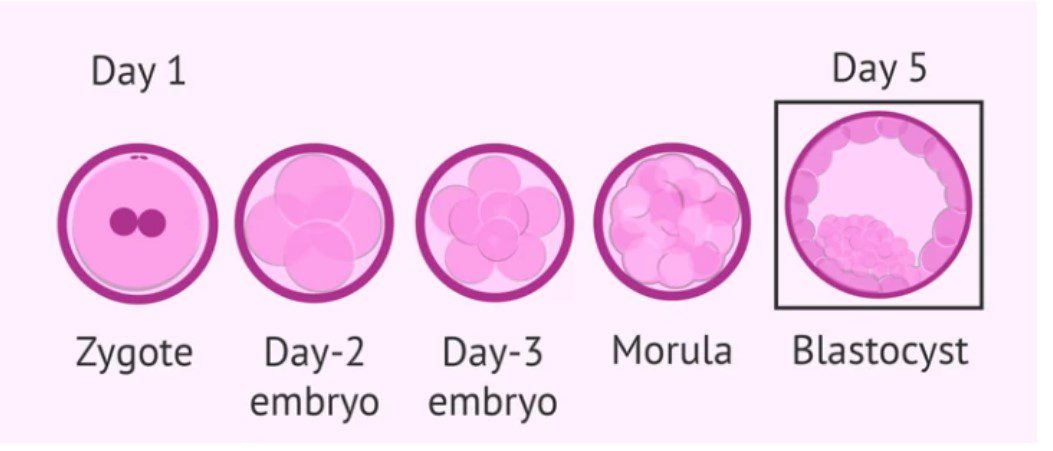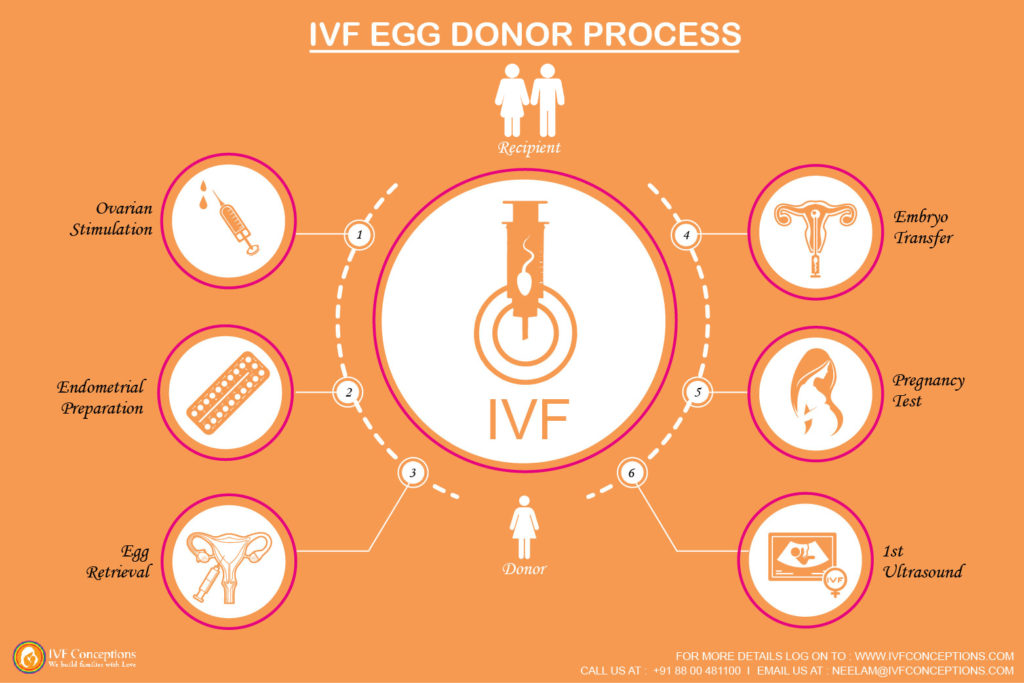Guaranteed IVF Programs: How Much Do They Cost?

Are you having trouble getting pregnant and thinking about IVF? You might be curious about the costs. Traditional IVF can cost a lot, between $15,000 to $30,000 per cycle. But, many fertility clinics in the U.S. now offer “guaranteed IVF programs.” These programs aim to make IVF more affordable and predictable. But, how much do they cost, and are they a good deal? Let’s look into it.
Key Takeaways
- Guaranteed IVF programs let patients pay a set fee for a treatment package. If they don’t succeed, they might get a refund.
- These programs can make traditional IVF’s high costs more manageable, which can be $15,000 to $30,000 per cycle.
- Refund programs have success rate limits. Patients might need to try multiple cycles to get a refund.
- Things like age, fertility history, and clinic success rates affect the cost and if you can join these programs.
- It’s important to understand these programs well to see if they’re right for your family’s financial and health needs.
Get in touch for FREE SURROGACY CONSULTING:
Mobile: +91-8800481100 ( WhatsApp, Line, Viber)
Email: neelam@ivfconceptions.com
Web: www.completesurrogacy.com
Understanding IVF Cycles and Packages
Exploring fertility treatments means understanding IVF cycles. An IVF cycle starts with hormone therapy to get the ovaries ready. Then, eggs are taken out, mixed with sperm, and the embryos go back into the uterus. This whole process is one IVF cycle.
What is an IVF Cycle?
Often, IVF gives many embryos. So, patients might have several embryo transfers before finishing a cycle. A cycle ends when all embryos from one retrieval are transferred. This could mean one or more transfers, based on how many embryos there are.
Pay-as-You-Go vs. Treatment Packages
There are two ways to pay for IVF: pay-as-you-go or treatment packages. Pay-as-you-go means paying for each part of the IVF process, like consultations and transfers. It’s flexible but might cost more overall.
Treatment packages bundle services together at a lower price. They’re great for those who might need more than one try. This way, you can save money if you’re planning on trying again.
Choosing between pay-as-you-go and packages depends on your finances and how many tries you might need. Talk to your doctor to see what’s best for you.
Types of IVF Treatment Packages
When looking at fertility clinics, you’ll see various IVF treatment packages. These packages cater to different budgets and needs. The main types are single-cycle and multiple-cycle bundles.
Single Cycle Bundle
A single-cycle bundle costs about $20,000. It covers one egg retrieval and lets you transfer embryos as many times as needed. This is a good choice if you think one IVF cycle will work for you.
Multiple Cycle Bundles
Multiple cycle bundles cost more upfront but save money if you need more than one cycle. For instance, a two-cycle bundle might be $25,000, and a three-cycle bundle $35,000. These deals are wise if you’re likely to try IVF more than once.
Choosing bundled IVF packages can save you money over paying for each cycle separately. Knowing the differences between single and multiple-cycle options helps you pick the right package for your needs and budget.
| IVF Treatment Package | Cost | Cycles Included | Key Considerations |
| Single Cycle Bundle | ~$20,000 | 1 Retrieval, Unlimited Transfers | Suitable if you only need 1 cycle |
| Multiple Cycle Bundle | $25,000 (2 cycles) $35,000 (3 cycles) |
2 or 3 Retrievals, Unlimited Transfers | Offers discounts if you need multiple cycles |
Looking at the different ivf treatment packages helps you make a choice that fits your fertility goals and budget.

Guaranteed IVF Programs with Refund
When looking into IVF, you might have heard about “guaranteed IVF programs with refunds.” These programs from fertility clinics offer a financial safety net for those going through IVF. But what do these refund programs include, and who can join them?
How Refund Programs Work
IVF refund programs usually give a 100% refund if a patient doesn’t bring home a baby after a certain number of cycles, like 3 to 6. This gives financial protection to those unsure about the high costs of IVF. The refund guarantee aims to ease worries and secure feelings as they go through the unpredictable journey of fertility treatments.

Eligibility Criteria for Refund Programs
- Clinics and third-party administrators check potential candidates for refund programs to make sure they fit the criteria.
- Patients with past failed IVF cycles, miscarriages, or other health issues might not qualify, as clinics want to lower their financial risk.
- Those more likely to succeed with IVF, based on age, fertility history, and other health factors, are more likely to get into refund programs.
Refund programs offer a financial safety net but also pose risks for clinics. They might push for more aggressive treatment to boost pregnancy chances, leading to more embryo transfers and possible complications.
Thinking about a guaranteed IVF program with a refund? Make sure to look into the clinic’s policies, success rates, and refund program details. This way, you can make a well-informed choice that meets your financial and health needs.
Additional Guides for Surrogate Mother:
Find a Surrogate Mother With or Without an Agency
In Which Country I Find Low-Cost Surrogate Mothers?
How can I Find a Surrogate Without Agency
What is the Age Limit for Surrogate Mothers
How Much Does Surrogacy Cost Using Family Member
How to Start the Gestational Surrogacy Process? A step-by-step guide for Beginners
How Much Does Surrogacy Cost? Everything You Need To Know
Success Rates and Refund Thresholds
When looking at a guaranteed IVF program with a refund option, knowing the success rates and refund rules is key. IVF success rates vary a lot between clinics. What counts as a “success” can also change.
Reports show most patients in refund programs get pregnant on their first try, often beating the national average of 34%. But, it’s important to know that clinics and third-party administrators might set the bar for refunds too low. They might consider a positive pregnancy test as a “success,” not a live birth. This means refund programs might help clinics more than patients in some cases.
To get the most from a guaranteed IVF program, you must look closely at the refund thresholds. Know what the clinic calls a “success.” This way, you can make a smart choice and set the right expectations for your IVF journey.
“The success of a refund program should be measured by the live birth rate, not just a positive pregnancy test,” says Dr. Sarah Johnson, a leading fertility specialist.
When checking fertility clinic performance, look at more than just the IVF success rates. Look at the refund program details and the clinic’s history. This helps you choose a guaranteed IVF program that meets your needs and goals.
Plain IVF Packages without Refund
When looking at fertility treatment, IVF packages without a refund can be a good choice. These non-refund programs have a clear price for the whole treatment. This makes understanding IVF cost transparency easier.
Plain IVF packages are easy to get into. Clinics like to offer these because they don’t take on much risk. This makes them a good option for people who might not qualify for more expensive programs.
But, some clinics might not push these packages as much. They might focus more on refund programs. This could mean patients with better chances of success pay more than if they paid for each cycle separately.
| Feature | Plain IVF Packages | Refund Programs |
| Cost Transparency | Typically a fixed fee for the entire treatment process | May involve complex pricing structures and eligibility criteria |
| Financial Risk | Less financial risk for clinics and patients | Clinics assume more financial risk, which can be passed on to patients |
| Accessibility | May be more accessible to a wider range of patients | May be less accessible to patients with less favorable prognoses |
In summary, plain IVF packages without a refund offer a clear and easy way to get fertility treatment. But, not all clinics will highlight these options. Patients should think about what they need and can afford before choosing a fertility treatment option.
Potential Risks and Controversies
IVF has helped many people and couples start their families. But, it’s not without risks and debates. One big issue is the practice of transferring many embryos at once.
Multiple Embryo Transfers
 Transferring many embryos at once is a debated topic. It can be risky for both the mom and the baby. Clinics might push for this to increase pregnancy chances and avoid losing money.
Transferring many embryos at once is a debated topic. It can be risky for both the mom and the baby. Clinics might push for this to increase pregnancy chances and avoid losing money.
This method brings big risks. It can lead to Ovarian Hyperstimulation Syndrome (OHSS) in the mom, causing serious problems. Also, having twins or triplets can be tough for babies, with issues like being born too soon, being underweight, and facing developmental hurdles.
Experts say single embryo transfers are best, especially for young patients. This lowers risks for both mom and baby. It also follows ivf regulations, and fertility treatment safety guidelines, and aims to reduce ivf risks.
Guaranteed IVF programs with refund options might seem good but think about the risks of many embryos. Talk openly with your doctors and know their success rates. This helps you make choices that put your health and your future kids’ health first.
Evaluating Fertility Clinic Offerings
Looking into a guaranteed IVF program means checking out what the clinic offers and its policies. You should look at their success rates, refund thresholds, and patient selection criteria. These details show how confident the clinic is in helping patients get pregnant.
A clinic that picks only a few patients for a refund program likely believes in its success chances. On the other hand, a clinic that doesn’t offer refunds to everyone might not be sure they can help everyone conceive.
Here’s what to consider when looking at a clinic’s offerings:
- What are the clinic’s success rates for its IVF program offerings?
- What are the eligibility criteria and thresholds for the refund program?
- Does the clinic have a history of successfully helping patients conceive through their guaranteed IVF programs?
- How transparent is the clinic about its patient selection process and the reasons for including or excluding certain individuals from its refund programs?
Looking at these factors helps you understand how confident a clinic is in its guaranteed IVF programs. This can help you decide if they’re right for your family goals.
Guaranteed IVF Programs
For those facing high fertility treatment costs, guaranteed IVF programs can change the game. These programs let patients pay a discounted fee upfront for a set number of IVF cycles and embryo transfers. This can save them thousands if they need more than one try to get pregnant.
Guaranteed IVF programs offer financial predictability. Patients don’t have to worry about the cost of each cycle. They can plan for a fixed fee that covers their entire fertility journey. This is great for those on a tight budget or worried about the cost of multiple IVF tries.
These programs also come with refund options. If patients don’t get pregnant after a certain number of cycles, they might get some or all their money back. This can make patients feel more secure about investing in IVF.
But, it’s key to know that each guaranteed IVF program is different. Patients should look into the details and rules of any program before joining. They need to make sure it fits their needs and budget.
Looking into guaranteed IVF programs can help those with infertility get affordable and new treatment options. This can increase their chances of having the family they’ve dreamed of.
Key Features of Guaranteed IVF Programs
- Upfront, discounted fees for a package of IVF cycles and embryo transfers
- Potential for significant cost savings compared to traditional IVF treatments
- Financial predictability and budgeting certainty
- Refund options that provide a safety net if pregnancy is not achieved
- Eligibility criteria and program details can vary, so thorough research is essential
Guaranteed IVF programs offer innovative solutions to the financial hurdles of fertility treatments. They help individuals and couples move closer to their dream of having a family.

Financing Options and Cost Assistance
When looking into ivf financing and fertility treatment costs, there are many options. Besides guaranteed IVF programs, there are cost assistance programs and infertility funding options. These can make fertility treatment affordability easier to reach.
Insurance might cover some IVF procedures or medications. It’s key to check your insurance plan and talk to your provider about what’s covered.
There are also grants and discounts from fertility clinics, non-profits, or companies. These can help those struggling with ivf financing.
Joining clinical studies is another way to get fertility treatment affordability. Patients might get cheaper or free IVF treatments by helping with research.
Low-dose or “mini IVF” is a cheaper option. It’s less expensive than full IVF, but it’s not right for everyone.
| Financing Option | Description |
| Insurance Coverage | Some insurance providers may cover certain IVF procedures or medications, reducing out-of-pocket costs. |
| Grants and Discounts | Fertility clinics, non-profit organizations, and pharmaceutical companies may offer financial assistance programs. |
| Clinical Studies | Participating in research studies can provide subsidized or discounted IVF treatments. |
| Low-Dose IVF | A more affordable alternative to traditional IVF, although it may not be suitable for all patients. |
Looking into these ivf financing and cost assistance options can help patients get the infertility funding and fertility treatment affordability they need. This way, they can work towards their family goals.
Guaranteed IVF: Are IVF refund programs Worth it?
Thinking about IVF treatment? Choosing a guaranteed IVF program with a refund option is a big decision. These programs offer a financial safety net for those who may not get pregnant right away. But, they also cost more upfront. It’s important to weigh the good and bad sides before making a choice.
One thing to think about is the success rate of the program. Refund programs can ease your mind, but most patients in them get pregnant faster than the average. This might mean you’re paying for a benefit you’d get anyway.
But for some, not getting pregnant on the first few tries can be tough. For these people, a refund option can change everything. It can help cover the cost of trying again, which can be very expensive. This refund lets you keep going towards your dream of having a family.
“Ultimately, the decision to enroll in an IVF refund program comes down to your individual circumstances and prognosis. Carefully weigh the potential upsides and downsides to determine if it’s the right choice for you.”
When looking at IVF refund programs, think about things like the eligibility criteria, the success rate thresholds for getting a refund, and the cost of the program. Also, check the reputation and track record of the fertility clinic offering the refund. This will help you make a smart choice.
Choosing between a guaranteed IVF program with a refund and a traditional IVF package is a personal decision. Think about the costs, benefits, and risks to decide what’s best for you and your wallet.
| Factors to Consider | Guaranteed IVF Refund Program | Traditional IVF Package |
| Upfront Cost | Higher | Lower |
| Financial Risk | Lower | Higher |
| Success Rate | Potentially higher than national average | Varies based on clinic and patient factors |
| Eligibility Criteria | Stricter | More flexible |
IVF Refund Program Cost

Thinking about fertility treatments like in vitro fertilization (IVF) means looking at the cost. IVF refund programs can help with the cost, but knowing what they cost and what affects the price is key.
The basic cost for an IVF cycle is between $12,000 to $15,000 or more. This price includes the main medical steps like egg retrieval and embryo transfer. Then, there are medications that can add $3,000 to $6,000 to the total cost. Genetic tests like preimplantation genetic screening (PGS) or preimplantation genetic diagnosis (PGD) can cost another $3,000 to $5,000 per cycle.
| Cost Breakdown | Average Range |
| Base IVF Cycle Fee | $12,000 – $15,000+ |
| Medication Costs | $3,000 – $6,000 |
| Genetic Testing (PGS/PGD) | $3,000 – $5,000 |
For those choosing a refund guarantee program, the initial cost goes up. These programs usually ask for $20,000 to $30,000 or more upfront. They promise a refund if the treatment doesn’t work out. The refund amount and rules differ, so it’s important to look at the program closely.
When thinking about an IVF refund program, consider not just the upfront cost. Think about the long-term costs too. By looking at all the costs and comparing them to possible refunds, patients can make a choice that fits their budget and needs.
IVF Refund Guarantee – Pros and Cons
When looking into in vitro fertilization (IVF), you might see “guaranteed IVF programs” or “refund guarantee” options. These programs aim to protect patients financially if the treatment doesn’t work out. But, it’s key to think about the good and bad sides before deciding.
Pros of IVF Refund Guarantee Programs
- Financial Protection: These programs can offer a safety net by refunding part of the cost if the treatment fails. This can ease the financial stress and worry of doing more IVF cycles.
- Reduced Stress: Having a financial backup can make the IVF process less stressful and more emotionally supportive.
- Increased Access to Care: These programs might make IVF more affordable for people who couldn’t afford it otherwise.
Cons of IVF Refund Guarantee Programs
- Eligibility Criteria: Clinics with refund programs might have strict rules that could keep some patients from getting IVF treatment.
- Incentive for Multiple Embryo Transfers: Some worry that these programs might push clinics to transfer more embryos at once, which could lead to more complications.
- Limited Refund Amounts: The refund offered might not cover all the costs of IVF, leaving patients with bills to pay.
- Potential for Misuse: Some experts think these programs could be a way for clinics to market themselves, not truly help patients.
Choosing an IVF refund guarantee program is a big decision that depends on your personal situation and goals. Make sure to look into different programs and talk to your doctor to find one that fits your needs.
| Pros | Cons |
| Financial protection | Strict eligibility criteria |
| Reduced stress | Incentive for multiple embryo transfers |
| Increased access to care | Limited refund amounts |
| Potential for misuse |
By considering the good and bad of ivf refund guarantee programs, you can decide if this financial setup is right for you. Knowing the benefits and drawbacks of these shared risk programs can guide you in choosing the best path in assisted reproductive technologies.
What services are usually included in the IVF Refund Guarantee Program with your own eggs?
 When looking into an IVF refund guarantee program that uses your own eggs, it’s key to know what’s covered. These programs often include a wide range of fertility treatments and support to boost your success chances.
When looking into an IVF refund guarantee program that uses your own eggs, it’s key to know what’s covered. These programs often include a wide range of fertility treatments and support to boost your success chances.
Typical inclusions in an IVF refund guarantee program with own eggs may include:
- Multiple complete IVF cycles, usually up to 6 attempts
- All medical and laboratory services throughout the IVF process, from medication management to embryo transfer
- Intracytoplasmic sperm injection (ICSI) and assisted hatching, if clinically indicated
- Cryopreservation and storage of viable embryos
- Costs associated with subsequent frozen embryo transfers
Many ivf refund guarantee programs also let you stop the program anytime and get a full refund. This gives you control over your fertility journey and lets you try other options if the first plan doesn’t work out.
When checking out fertility treatment services covered under an IVF refund guarantee, make sure to look at what’s included and what’s not. Knowing the full ivf program components helps you make a smart choice. It lets you pick the fertility clinic offerings that fit your needs and budget.
| Service | Included | Excluded |
| IVF Cycles | Up to 6 complete cycles | Additional cycles beyond the program’s limit |
| Medications | All medications required for IVF | None |
| Genetic Testing | ICSI and assisted hatching, if clinically indicated | Advanced genetic testing, such as PGT-A |
| Embryo Cryopreservation | Cryopreservation and storage of viable embryos | None |
| Frozen Embryo Transfers | Costs of subsequent frozen embryo transfers | None |
Understanding the full services in an IVF refund guarantee program helps you make a smart choice. It lets you pick a fertility plan that meets your goals and budget.
Conclusion
Guaranteed IVF programs with refund options can help many patients with the high costs of fertility treatments. But, these programs differ a lot in how they work, who can join, and what benefits they offer. It’s important to look closely at any program to see if it fits your needs and goals.
When thinking about ivf cost considerations and fertility treatment financial planning, check the details of guaranteed IVF programs. Look at their guaranteed ivf program evaluation and the infertility solutions they provide. This will help you choose the best option for your situation and budget, leading you to the right path in your journey to becoming a parent.
The decision to go with a guaranteed IVF program is very personal. The best choice depends on your own needs and what matters most to you. By doing your homework and considering the good and bad, you can make a choice that helps you reach your dream of having a family.
If you’d like to learn more about IVF, Egg Donation, or surrogacy Consulting services globally, check out the rest of our website at IVF Conceptions.
Our team has over 14 years of experience facilitating surrogacy arrangements, egg donation, and serving as an advocacy resource for infertile couples and LGBTQ individuals seeking to build families. Till now we have helped and supported thousands of the intended parents with their family-building journey, and we can help you as well. Happy to share the references from the past IPs if needed.
If you’d like to learn more about IVF, Egg Donation, or surrogacy services globally, check out the rest of our website at Complete Surrogacy. We offer legally secure and affordable surrogacy consulting services for FREE.
Get in touch for FREE SURROGACY CONSULTING:
Mobile: +91-8800481100 ( WhatsApp, Line, Viber)
Email: neelam@ivfconceptions.com
Web: www.completesurrogacy.com
FAQ for Guaranteed IVF Programs

What are guaranteed IVF programs and how do they work?
Guaranteed IVF programs let patients pay upfront for a discounted package of IVF treatments. If they don’t get pregnant, they might get a refund. These programs help make fertility treatments more affordable, which can cost between $15,000 to $30,000 per cycle.
What is an IVF cycle and how do the costs differ between “pay-as-you-go” and treatment packages?
An IVF cycle starts with hormone therapy to get eggs. Then, the eggs are used to make embryos, which are put back into the uterus. Costs can add up fast, especially if you need more cycles. Pay-as-you-go options charge for each cycle. Treatment packages offer discounts for buying cycles upfront.
What types of IVF treatment packages are available?
Clinics offer two main IVF packages: Single Cycle Bundles and Multiple Cycle Bundles. Single Cycle Bundles cost a flat fee, like $20,000, for one cycle with unlimited transfers. Multiple Cycle Bundles cost more upfront, like $25,000 for two cycles or $35,000 for three, but save money compared to paying for each cycle separately.
How do IVF refund programs work, and what are the eligibility criteria?
IVF refund programs offer a full refund if a patient doesn’t bring home a baby after a few cycles, usually 3-6. But, clinics and third-party groups carefully check who can join. They often exclude those with past failed IVF or miscarriages.
What are the success rates and refund thresholds for IVF refund programs?
Over 50% of patients in refund programs get pregnant on their first embryo transfer, much higher than the national average. But, clinics set low success thresholds for refunds, sometimes just a positive pregnancy test, not a live birth.
What are the potential risks and controversies associated with IVF refund programs?
Some worry that clinics might push for too many embryos per cycle, especially in refund programs. This can increase risks for the mother and lead to more multiple births. It’s done to boost pregnancy chances and avoid refund payouts.
How can patients evaluate and compare different IVF program offerings?
Patients should look closely at any IVF program’s success rates, refund rules, and who they pick for the program. If a clinic is very picky, it might mean they’re confident in their success rates. On the other hand, being strict might mean they’re not sure about their success.
What other financing options and cost assistance are available for IVF treatments?
Besides guaranteed IVF programs, patients can lower costs with insurance, grants, discounts, and clinical studies. “Mini IVF” might also be cheaper for some, but it’s not for everyone.
Are IVF refund programs worth it?
IVF refund programs are complex. They can protect money for some who don’t get pregnant quickly. But, most patients in these programs succeed faster than average, possibly paying for a benefit they’d get anyway. Patients should think about their own situation and chances before deciding.
What are the typical costs associated with IVF refund programs?
IVF refund programs’ costs vary a lot. They depend on the base fee, medication, genetic testing, and extra cycles or transfers. Knowing these costs is key to seeing if a program is worth it.
What are the pros and cons of IVF refund guarantee programs?
IVF refund guarantees offer financial safety and peace of mind for those who don’t get pregnant right away. But, there are concerns about how these programs work. Some clinics might be too picky about who joins and might push for too many embryos, which could be risky.
What services are typically included in an IVF refund guarantee program using the patient’s own eggs?
The Shady Grove Fertility Shared Risk 100% Refund Program includes all medical and lab services for up to 6 IVF cycles, assisted hatching and ICSI if needed, embryo cryopreservation, and more. Patients can also cancel and get a full refund anytime.
Source Links

